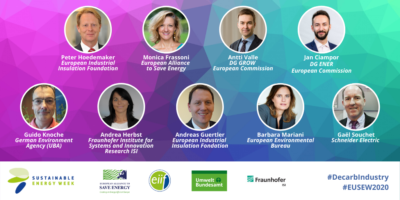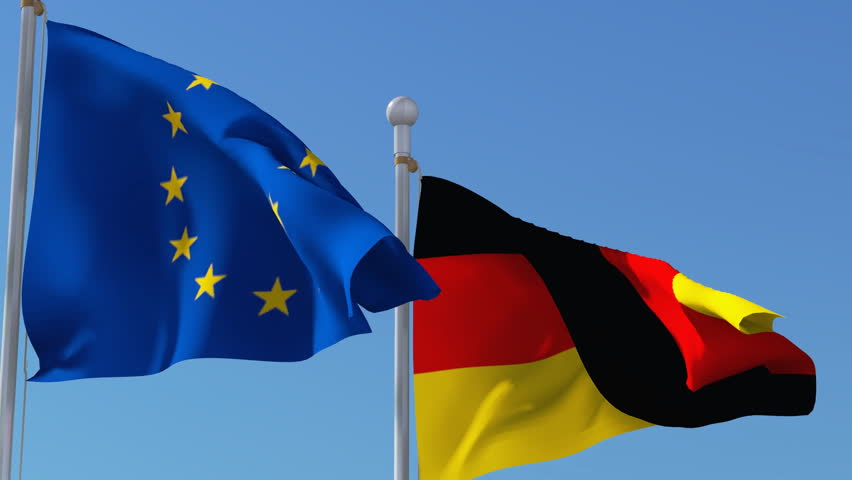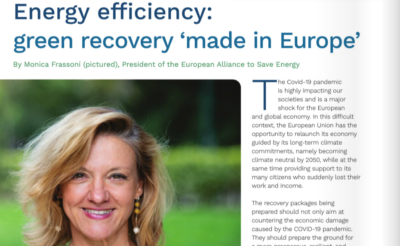Decarbonising industry and the ICT Sector (EUSEW 2020 side event)

The webinar “Decarbonising industry and the ICT sector: energy and CO2 saving potentials in the short and longer term“, part of the EU Sustainable Energy Week 2020 extended programme, brought together policymakers, researchers, and a cross-sectorial group of business representatives to discuss about:
- existing technologies and approaches to save energy and reduce emissions in industry and the ICT sector – in the short term
- policy guardrails needed for a GHG-neutral EU industry and ICT sector – in the longer term
Three impulse presentations were followed by a panel discussion with policy-relevant actors and a virtual interaction with the audience.
Speakers: Peter Hoedemaker, President, European Industrial Insulation Foundation; Jan Ciampor, Policy Officer, Energy Efficiency Unit, DG ENER, European Commission; Antti Valle, Deputy Head of Unit, Energy Intensive Industries and Raw Materials, DG GROW, European Commission; Andreas Guertler, Director, European Industrial Insulation Foundation; Gaël Souchet, Senior Product Manager New Energy Storage, Schneider Electric; Andrea Herbst, Senior Researcher, Fraunhofer Institute for Systems and Innovation Research ISI; Guido Knoche, Senior Advisor for Climate, German Environment Agency (UBA); and Barbara Mariani, Senior Policy Officer for Climate, European Environmental Bureau.
Moderator: Monica Frassoni, President, European Alliance to Save Energy.
The event was co-hosted by the European Industrial Insulation Foundation, the European Alliance to Save Energy, the German Environment Agency (UBA) and the Fraunhofer Institute for Systems and Innovation Research ISI.




